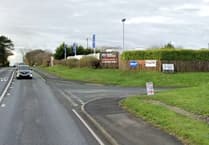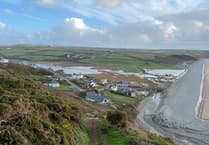Senior Pembrokeshire councillors have backed a call to use starter funding to reduce potential risks for the Celtic Freeport company until a decision is reached on business rates retention.
In late March Pembrokeshire was chosen as part of the site – along with Port Talbot – for one of Wales’ first freeports, with hopes it will share in the creation of 16,000 new jobs.
The Celtic Freeport follows a bid lodged on behalf of a public-private consortium, whose partners include Associated British Ports (ABP), Neath Port Talbot Council, Pembrokeshire County Council and the Port of Milford Haven.
The freeport aims to attract significant investment, including £3.5bn in the hydrogen industry, as well as the creation of 16,000 jobs, generating £900m in Gross Value Added (GVA) by 2030, and £13bn by 2050.
The UK Government will provide up to £26m of starter funding for each of the freeports.
Members of Pembrokeshire County Council’s Cabinet, at their October 2 meeting, heard a draft Outline Business Case for the Freeport was awaiting final decisions on whether the retention of non-domestic rates generated through new business development would be available to the local authorities involved, as in English freeports, the Celtic Freeport Partnership having entered into the Freeport competition with the understanding this would apply.
“The intention is that this would then be spent on appropriate projects and capital investments, helping maximise the scale of the investment,” a report for members stated.
“The indication was that these could also be used to support borrowing costs. Recent discussions with Welsh Government and UK Government officials have highlighted that the two governments are in discussion about this matter. Until we have clarity on this position, expenditure that we incur with respect to Freeport development and delivery is at risk.
“In order to minimise this risk, we will work with our partners to seek commitment to recouping such at risk expenditure through the initial seed corn funding pot.”
The report said there was also a need to bring forward the recruitment of a chief executive – being led by Neath Port Talbot Council – to the Celtic Freeport Project Board.
Cabinet Member for Place, the Region and Climate Change Cllr Paul Miller, who moved the recommendation, said there was a risk in spending the money, but said: “We’re pretty confident that will be recovered either through retained business rates or seed funding.
“The rates retention is a ‘live’ discussion between the UK and Welsh governments; I’m sticking my nose out to ensure the right outcome is delivered.”
He added: “It’s a live ‘arm-wrestle’ that’s going on at the moment.”
Members agreed to give the council’s chief executive delegated authority to vote in the appointment of a freeport chief executive, and for officers – through the Freeport Board – to seek the ability to use Freeport seed corn funding to support initial costs incurred in support of the spatial planning requirements.





Comments
This article has no comments yet. Be the first to leave a comment.